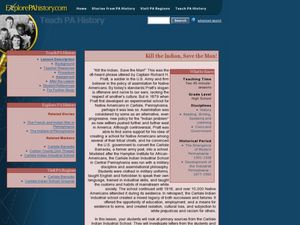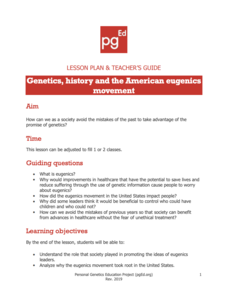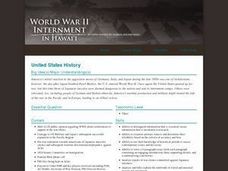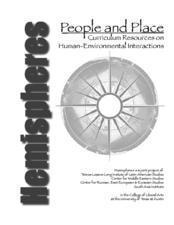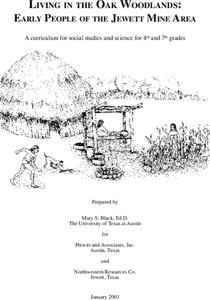Curated OER
A Colony is Born : Lesson 5 - Dear Mem
Discover colonies! Young historians will listen to a primary source journal entry read aloud with a backdrop of wave sounds. They discuss the entry, add historical facts to a chart and personal insights to another. Then they listen to...
American Institute of Physics
African American Inventors in History
A two-part lesson introduces young historians to the work of famous African American inventors. Groups first research and develop a presentation of an inventor that includes biographical information and information about one of their...
American Institute of Physics
Historical Detective: Edward Alexander Bouchet and the Washington-Du Bois Debate over African-American Education
Young scientists meet Edward Alexander Bouchet who, in 1876, was the first African American to receive a PhD in Physics. This two-part lesson first looks at the debate between Booker T. Washington and W.E.B. Du Bois about the type of...
American Institute of Physics
The Physicist's War: Dr. Herman Branson and the Scientific Training of African Americans during World War II
The mobilization of soldiers for World War II resulted in a worker shortage in the defense industries, especially in the fields of physics and other sciences. The Engineering, Science, and Management War Training program (ESMWT) was...
Curated OER
The Chesapeake Bay in Captain John Smith's Time
When Captain John Smith visited the Chesapeake Bay in the summer of 1608, what types of animals and habitats did he encounter? Your young historians will analyze primary source documents to answer this question, as well as compare the...
American Institute of Physics
The Tuskegee Weathermen: African-American Meteorologists during World War II
Chances are good that young scholars have heard of the Tuskegee Airmen but few would predict that these pilots had their own support in the form of the Tuskegee Weathermen. These Black meteorologists were recruited and trained to provide...
Curated OER
Kill the Indian, Save the Man!
Students investigate primary sources from Carlisle Indian School including letters and photographs. In this investigative lesson students answer questions about their research.
Personal Genetics Education Project
Genetics, history and the American Eugenics Movement
A poignant 20-slide show introduces high schoolers to the amazing accomplishments of genomics and raises the question of eugenics. This lesson is only for mature audiences, as it deals with rape and other sensitive topics, but it is...
Curated OER
Geothermal Energy in Latin America
Here is a wonderful series of lessons designed to introduce learners to the variety of renewable, clean energy sources used by people all over the world. Geothermal energy is the resource focused on. This particular sources of energy...
Library of Congress
The Conservation Movement at a Crossroads: The Hetch Hetchy Controversy
Should wilderness areas be preserved or managed? Class members examine primary source documents, including lecture notes, articles, essays and congressional records to better understand the Hetch Hetchy controversy that created a split...
Curated OER
Jackie Steals Home
Learners draw on their previous studies of American history and culture as they analyze primary sources from Jackie Robinson and Other Baseball Highlights, 1860s - 1960s in American Memory. A close reading of two documents relating to...
Curated OER
Photojournalism: A Record of War
Students explore who has photographed war and why. They examine Mathew Brady's process for photgraphing the Civil War. Students investigate how photographic equipment has changed and improved through time. They analyze primary source war...
Curated OER
Irish-Americans: Work and Song
Students research the experience of Irish immigrants who helped build the railroad systems of the United States. They analyze primary source documents, take notes, and create an artistic piece.
Curated OER
Conservation at a Crossroads Lesson 1: What Is Conservation and Why Does It Matter?
Young scholars explore the concept of conservation. In this conservation lesson, students read articles and primary documents about the Conservation Movement in the United States and compare the movement to today's environmental...
Captain Planet Foundation
P is for Poppies
Explore the way local farming and rationing helped the war effort in World War I with a lesson plan on gardening. After learning about trench warfare, reading "In Flanders' Field" by John McCrae, and studying poppies, kids discuss the...
DocsTeach
Patent Analysis: Wright Brothers' Flying Machine
Ideas take flight in an exciting activity exploring the Wright Brothers. Scholars view the Wright Brothers' patent for their flying machine and makes educated guesses as to the purpose of the document. Scholars discuss the purpose of...
American Institute of Physics
The Physical Sciences at Historically Black Colleges and Universities
The history of science instruction at Historically Black Colleges and Universities (HBCUs) is the focus of a lesson that explores the early challenges these institutions faced in accessing equipment for their labs and instructors for...
Benjamin Franklin Tercentenary
Designing Benjamin Franklin: In Search of a Better World
How do you convey someone’s creativity? Individuals answer the question as they design exhibitions to showcase the intellect and genius of Benjamin Franklin. After conducting research, classmates work in groups to try to capture and...
Curated OER
Biomimicry, Nature: Architecture of the Future
Students explore the relationship between nature and architecture. In this cross curriculum history, culture, and architecture lesson, students observe and discuss structures visible in nature. Students view websites in which Native...
Curated OER
World War II: Internment in Hawaii
Students examine world history by writing an essay in class. In this World War II lesson, students identify the attack on Pearl Harbor, the response from the U.S and the effect it had on Japanese-Americans. Students define Japanese...
Curated OER
Solar Heating in the Himalayas
A fascinating lesson on how solar power is utilized by people who live in the Himalayas is here for you. In it, learners perform a case study which will help them understand that solar energy is a renewable resource, that geography...
Curated OER
Exploring Alternative Energy Sources
Learners research the amount and kinds of energy that are produced and consumed in the United States, including the limitations of this kind of consumption. They research and create a display to teach classmates about a specific...
Curated OER
BIRDS OF A FEATHER
Students observe and identify characteristics of artifacts and fossils; explain how artifacts and fossils are used to explore the past; and identify ways that Native Americans prepared food and made tools
Curated OER
Living in the Oak Woodlands: Early People of the Jewett Mine Area
Students examine the archeology and native peoples of the Jewett Mine area of Texas. Using a map, they explain the economic patterns of the native groups and how the geography of the area affected activities. They compare and contrast...








